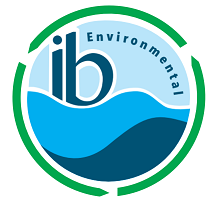Water utilities play an important role in a community by providing an essential service. For years, many water systems have utilized partnerships by collaborating with other nearby utilities to address challenges or take advantage of opportunities. This series of three posts will highlight how a group of communities in Georgia partnered to receive a joint designation to the prestigious WaterFirst Program.
Read MoreWater is such a universally essential service, that many utilities seek ways to help their low-income customers with affording the service. Generally referred to as a “customer assistance program” or CAP, this help can take different forms. Some utilities assist by repairing leaks and retrofitting low-income customers’ homes with water efficient devices. But, the more common approach is to provide some sort of financial assistance. For example, a special payment plan to help customers who have arrearages may be coupled with some debt forgiveness. Many utilities also offer discounts on the bills of customers who can prove their low-income status. But, is the cost of implementing such a program prohibitive? The good news is that there has never been a better time to find out.
Read MoreThe pandemic may not be affecting all water utilities evenly across Georgia. While both the unemployment rate and the virus spread remain high, a few utilities have actually seen increases in rate revenues and connection fees over the last few months. Several metro utilities say they have not seen a significant drop in non-payment yet. At the national level, Standard and Poor’s (S&P), a utility credit-rating agency, reports it only downgraded 39 of the roughly 17,000 communities that the company has utility rating relations with between March and mid-December, 2020. So, with this much job loss, which utilities are suffering?
Read MoreOperating efficiently is the first line of defense against steep rate increases and water affordability issues. However, a pandemic requires physical distancing, and this can be a challenge for water utilities sending crews out to fix water infrastructure. Under normal circumstances, “efficiency” may mean that a small crew reports to the work site in the same vehicle. With the pandemic, utilities have had to become creative in order to keep their workers safe by putting them in separate vehicles. Finding inexpensive ways to do that is crucial. This is especially true in cases where the utility has forgone its planned rate increase, or is facing revenue shortfalls due to declines in sales from commercial and industrial customers. This post shares some innovative ways that several utilities have reported keeping their costs down with respect to vehicles.
Read MoreThe Henry County Water Authority (HCWA) provides water service to over 61,000 residential customers and wastewater services to over 24,000 residential customers within unincorporated Henry County along with the cities of Hampton, Locust Grove, McDonough, and Stockbridge in Georgia. It has a total service area population of 240,900 people. This utility has a water treatment capacity of 40 million gallons per day and a wastewater treatment capacity of about 10.7 million gallons per day. What does the average customer pay for these services?
Read More




